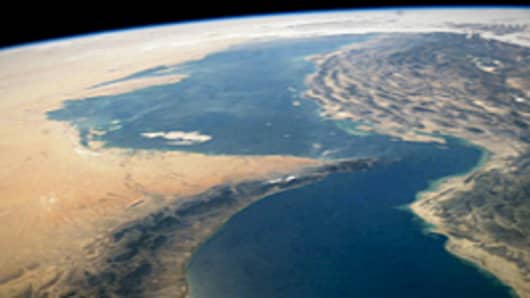The attention of investors has been rightly focused on a solid earnings season, employment data, and the Federal Open Market Committeemeeting on Tuesday.
Unfortunately, the elements that constitute so-called risk or geopolitical premium in oil prices suffer from no distractions. Several newsworthy events, recently, represent the dots that the oil market may begin to connect to produce a significant event driven price spike in prices - potentially driving crude oil prices upwards of $200 per barrel.
The most recent dot was news on Sunday that Iran inaugurated into service four new small submarines into its naval fleet, whose design and purpose are to maneuver in the shallow waters off the coast of Iran into the vital oil shipping lanes of the Strait of Hormuz, through which 40% of the world's traded oil flows.



